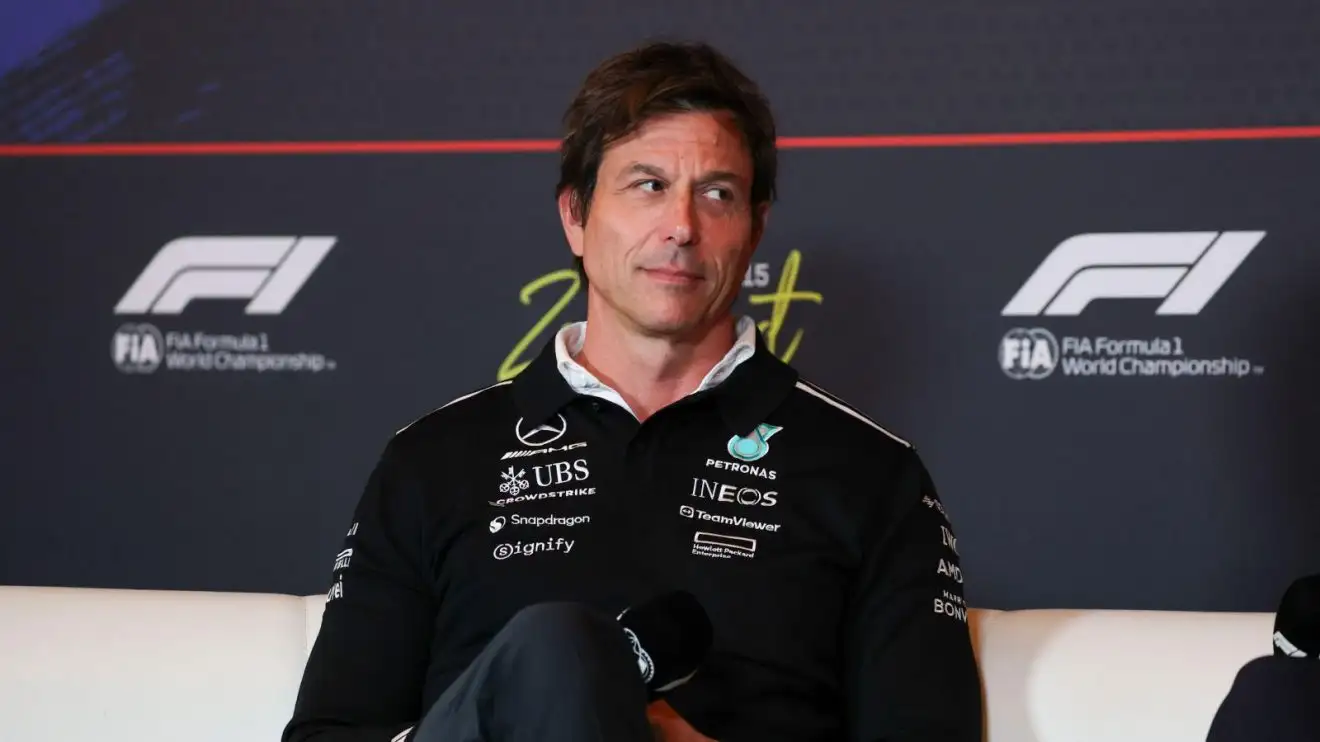Toto Wolff gives future F1 engine update with ‘alignment of interest’ verdict

Mercedes team principal and CEO, Toto Wolff.
Mercedes team principal Toto Wolff said there was an “alignment of interest” in how to move forward with future Formula 1 engines, beyond the next power unit era.
Talks were due to take place in London this week but were delayed, with FIA single seater director Nikolas Tombazis telling PlanetF1.com that “there wasn’t going to be enough consensus” across the board on how best to proceed.
Toto Wolff explains ‘alignment of interest’ in future F1 engine regulations
While the next era of power units is set to focus on greater electrification within the cars, with an approximate 50-50 split in electric power combining with internal combustion in a 1.6-litre V6, the era beyond that is up for debate.
Tombazis acknowledged the need for “cost reduction across the board” in Formula 1, but did not want to judge any regulations before they are decided.
While conversations had taken place to potentially replace next year’s power units for the 2029 season, Wolff explained that the engine manufacturers in Formula 1 did not want to invest significant amounts of money in all-new engines, only to start the process again in a couple of seasons.
The new power units next season are likely to be used for a full regulation cycle, potentially up to 2031, but where the teams and manufacturers are aligned, however, is wanting to create the best possible experience for fans.
More on the F1 2026 season
👉 Explained: The 2026 engine regulations set to seriously shake up Formula 1
👉 F1 2026 driver line-up: Which drivers are already confirmed for 2026?
With that, Wolff said the teams will be in dialogue with the top of the FIA and FOM to continue their “really good conversations” on the subject.
“I think where we are all on sharing the objective is to have the best possible, spectacular regulations to attract fan interest,” Wolff told PlanetF1.com’s Thomas Maher and others at Monza.
“And the V8, at the end, was the best consensus, and have it naturally aspirated, revving with an energy recovery system that is still a performance differentiator, and all of that is pretty aligned with a sustainable fuel.
“Most of the OEM [original equipment manufacturers] said we don’t want to run a dual cost program earlier, because it would effectively mean we need to develop the new engine in two years. We didn’t want that, and now it’s about the dialogue with Mohammed Ben Sulayem and with Stefano [Domenicali], what are their expectations?
“And then getting all the OEMs and all the engine manufacturers on the table and say, ‘what are we doing now?’ But there’s an alignment of interest, I would say. It’s really good conversations that we’re having now, very balanced and rational.”
Read next: New Red Bull inside info emerges with Vettel at centre of huge F1 breakthrough





